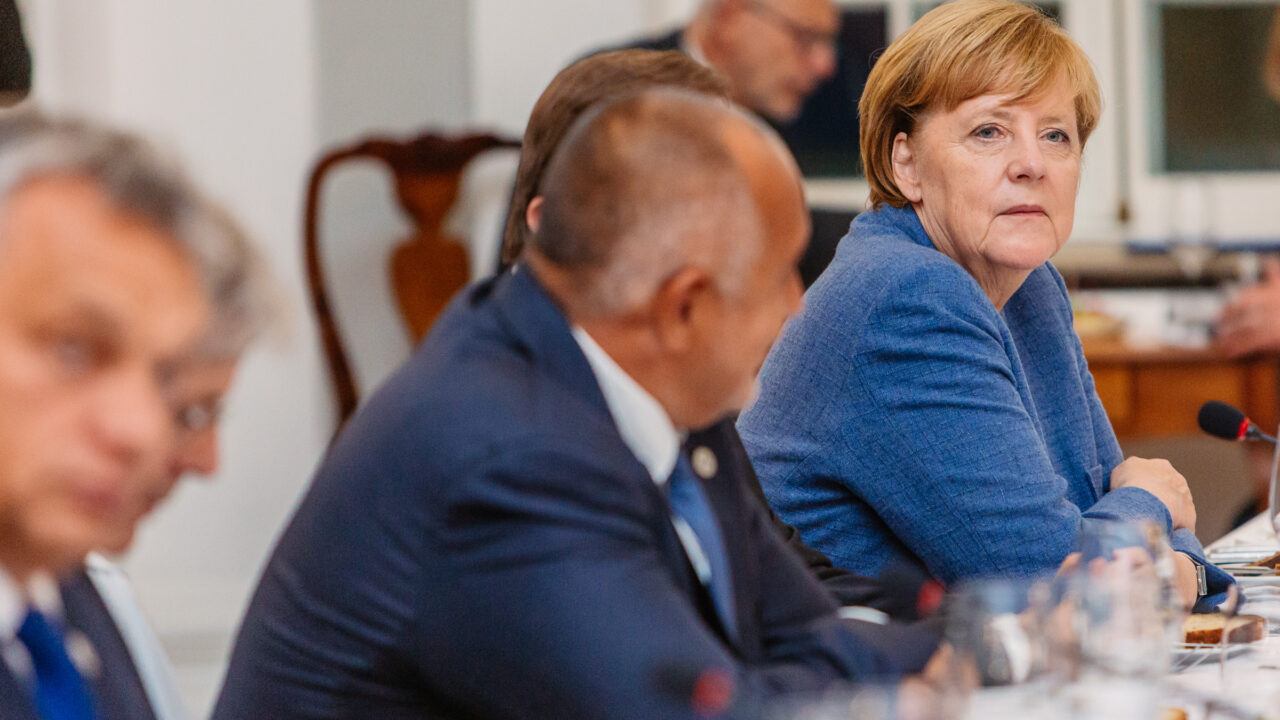Election 2021: How Germany could vote Green but keep the status quo
This year’s election could catapult the Greens to power – but it may not be enough to bring about the reforms Germany needs
With the Christian Democratic Union (CDU) reeling from defeat this month in two state elections, German politics at the moment has an air of 1998 about it. In not dissimilar circumstances 23 years ago, the Social Democrats and Greens came to power nationally in coalition for the first time. That success ended their conservative rivals’ long period of rule over a country that felt that the CDU was no longer able to address the core challenges Germany was facing on the verge of the twenty-first century. That new government defined its “project” in distinct opposition to the managerial, status quo-orientated policies of the CDU. It focused on enacting liberal social change and implementing new environmental policies. Above all, it promised to tackle unemployment. In foreign policy, it ushered in a new paradigm, permitting German military engagement in Yugoslavia while opposing the Iraq war.
More than two decades later, the time for change seems ripe again. The CDU’s covid decision-making has been chaotic: it is mired in a corruption scandal around mask procurement, vaccinations are slow, and the pandemic has ruthlessly exposed weaknesses in the German model. The country is lagging behind in digitalisation, needs much more public investment in education, innovation, and infrastructure, and Germany’s export-orientated economy is vulnerable to economic blackmail in the geo-economic great power competition.
The CDU’s recent defeats in Baden-Wuertemberg and Rhineland-Pfalz this month were of historic proportions. These states were once CDU strongholds, but the party may now end up in opposition in both. Opinion polls for this September’s federal election confirm that the CDU is struggling; even once-outlandish options such as a left-leaning coalition of the Social Democrats and Die Linke under a Green chancellor no longer appear a stretch.
It was, of course, Angela Merkel who dislodged the former red-green coalition from power. But, 16 years on, and in spite of the CDU’s difficulties, Germans may not be as ready for the end of Merkelism as recent votes and polls suggest. And the CDU’s decision in January to nominate Armin Laschet as Merkel’s successor as party chair suggests the cautious leader approach may yet prevail. Laschet believes in the chancellor’s incrementalism, tends not to take clear positions on even major matters, and appears uninterested in big visions for Germany’s future. The decision about who will become the CDU’s candidate for the chancellorship (Laschet or Bavaria’s state premier, Markus Söder) will be taken after Easter. Either way, a 1998-style new beginning is unlikely.
Germany’s post-1945 political culture is one dominated by an inclination for moderation and centrism – often referred to as Mittigkeit. Germans have long been content with this approach, and it has arguably provided remarkable political stability and a lower level of political polarisation than anywhere else in Europe. But the flipside has been a powerful status-quo orientation and lack of readiness to tackle the country’s long-term challenges. This compulsion towards the centre is affecting Germany’s Greens, who are currently second in the polls, as much as it is the CDU. That is not to say some of their positions do not represent potential breaks with the past: they support a more ambitious climate policy, have innovative ideas about finance policy, and want to break with the geo-economic approach to China and Russia. This is quite something by German standards. But a large share of their rise in popularity is linked not so much to the ground-breaking ideas they play with but their image of a new reliable party of Mittigkeit. In Baden-Wuerttemberg, the Greens won with a lead candidate who in many ways resembles the traditional CDU ministers president in style and policies; he publicly said he would favour a coalition with the conservatives on the national level. And polls suggest that coalition with the CDU is the likeliest option for the Greens. It is those German voters who are particularly strongly attached to Merkel – and less to the CDU as a party – who are the Greens are eyeing up. In the European Parliament election in 2019, almost as many former CDU voters (1.1 million) as former Social Democrat voters (1.2 million) switched to the Greens. Merkel’s departure may only strengthen this trend. Interestingly, young Germans who have grown up in the Merkel era are largely happy with the chancellor and not really yearning for a break with her legacy. Her voters do not necessarily value risk-taking and radicalism.
The Greens are eyeing up those voters who are attached to Merkel but not the CDU.
The Greens are currently doing well because they seem to offer a way out of the change-versus-status-quo dilemma to a public that is sensing the need for something new but still hankers after stability. This may prove to be a successful campaign strategy but will cause difficulties in government. To put it pointedly: Will Green climate policies really go beyond the setting of a slightly higher carbon price in emissions trading? Will they make the tough power-politics and geopolitical choices necessary to strengthen the EU in times of geo-economic competition?
Paradoxically, the big strategic problems facing the country mean that to protect what Germans value most about the Merkel era – stability, prosperity, and predictability, and to secure it for the future – might require more courage and readiness for change than even the Greens currently countenance. If they enter government, the Greens will have to cater to their new-found centrist voters. Merkelism without Merkel is not as unlikely as it sounds.
The European Council on Foreign Relations does not take collective positions. ECFR publications only represent the views of their individual authors.




